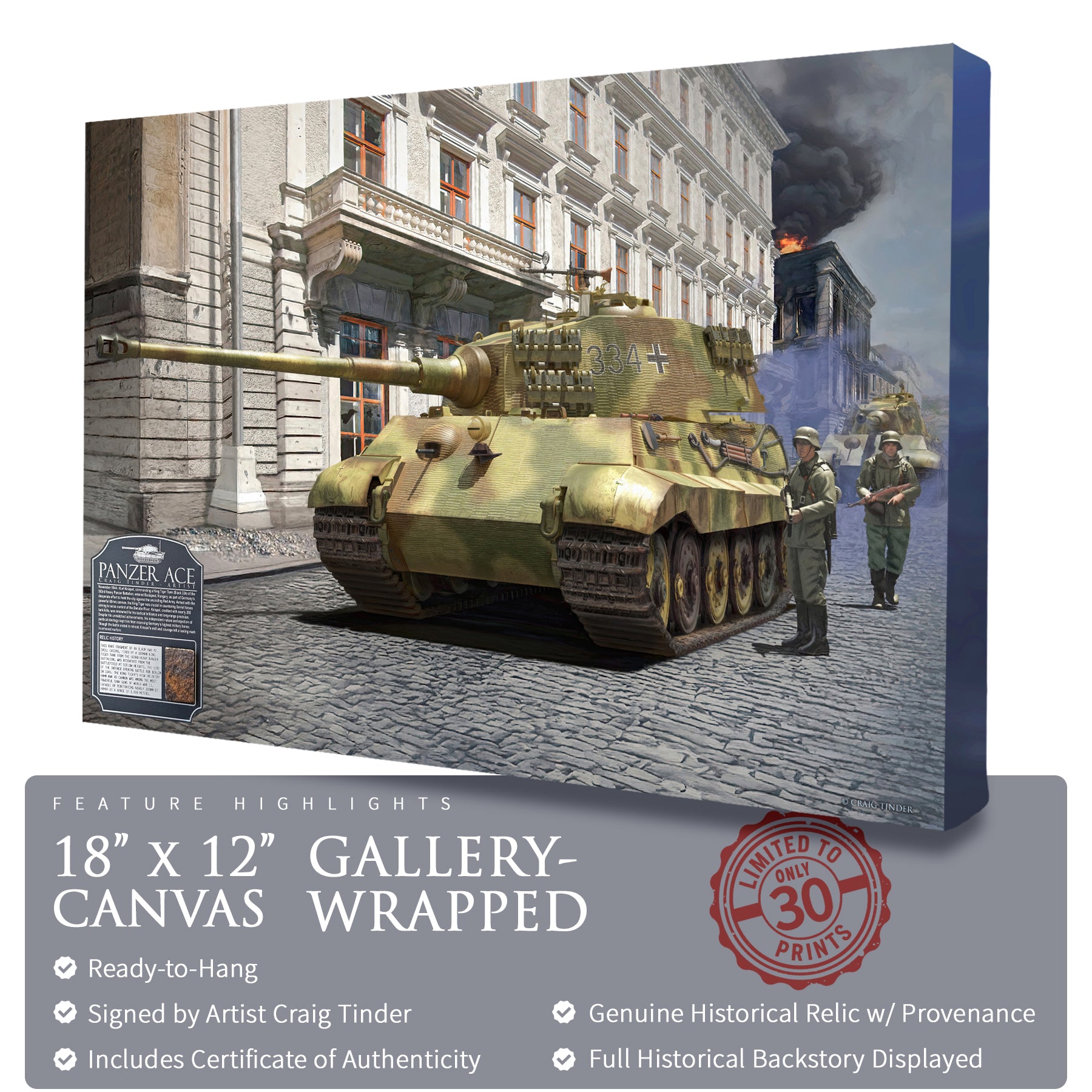
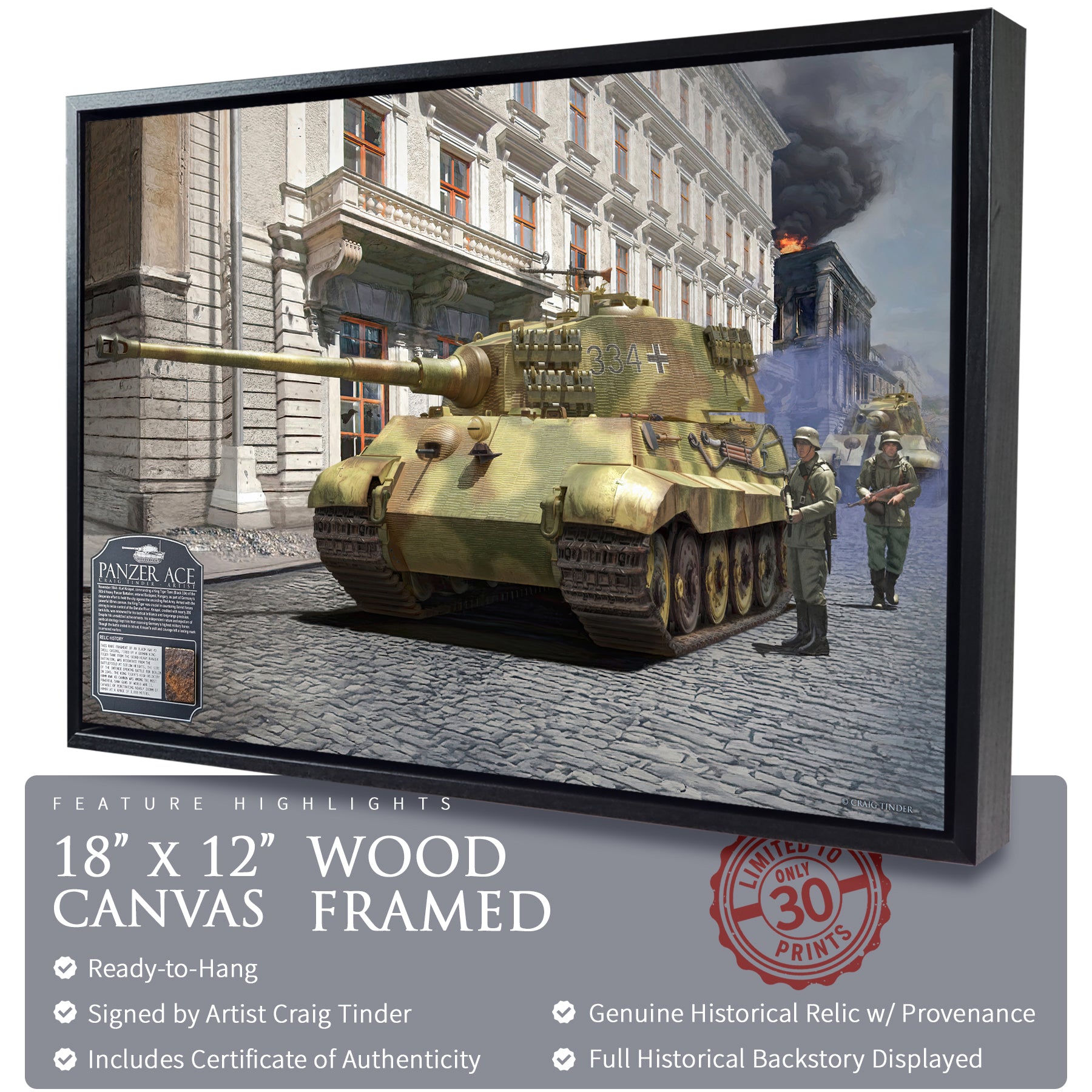
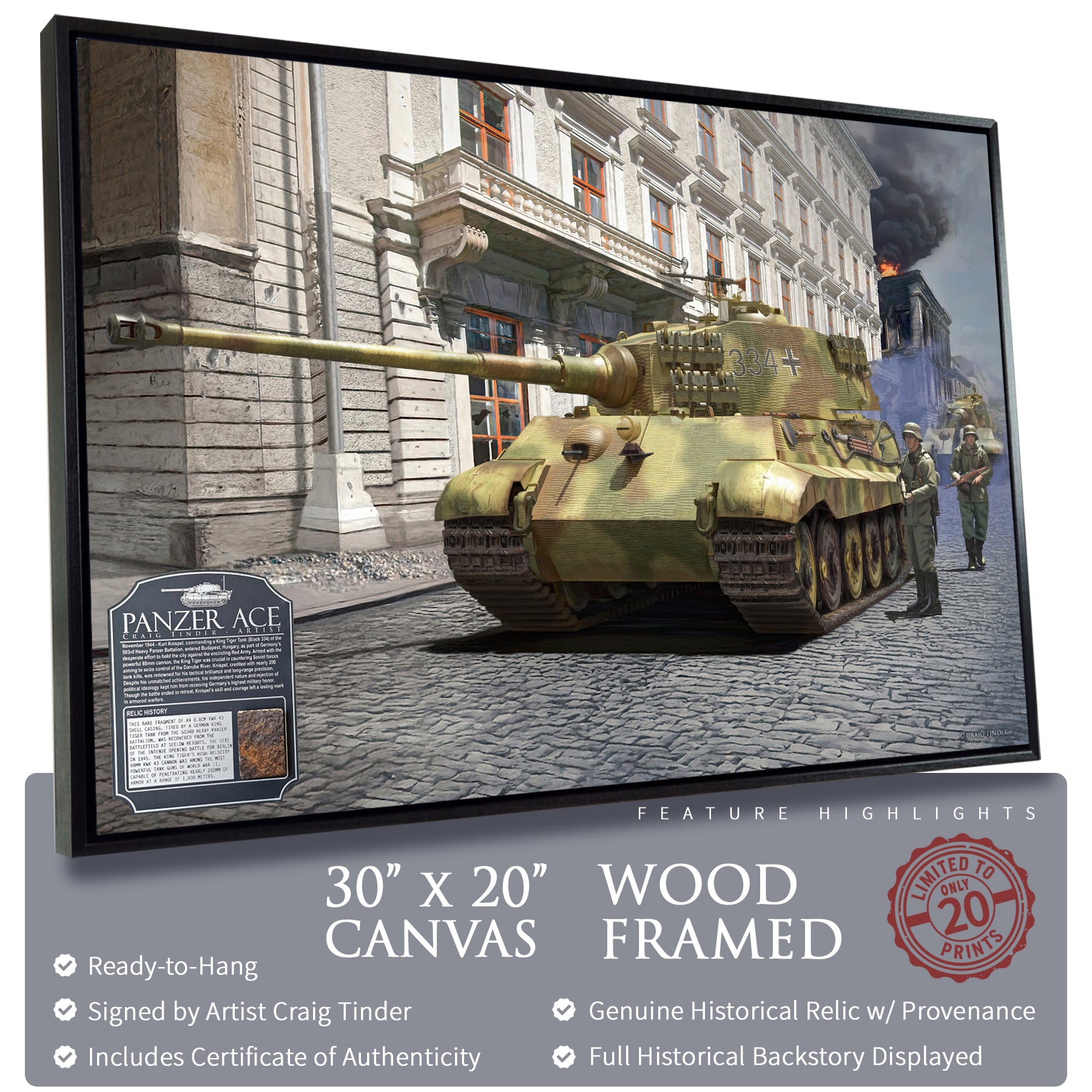
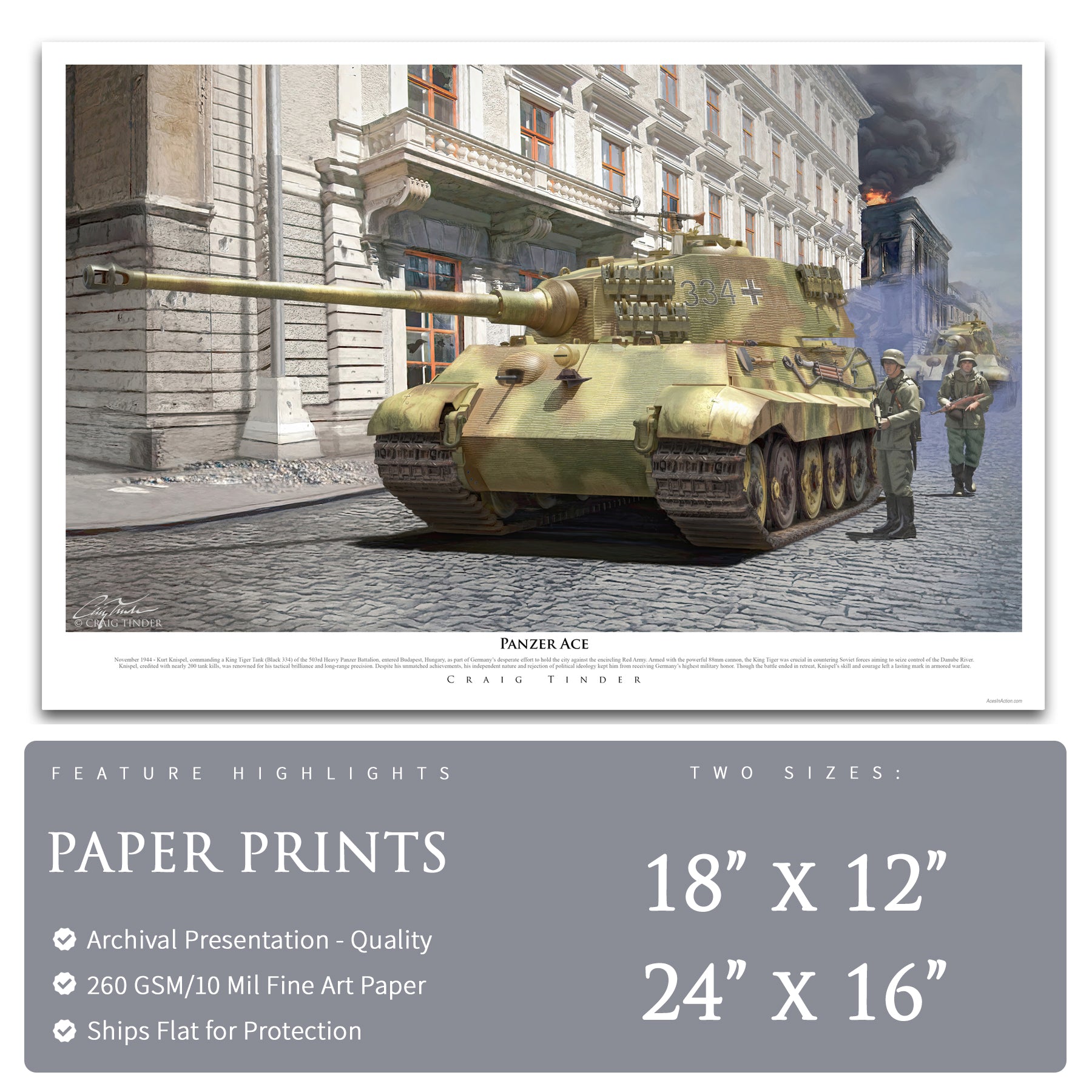
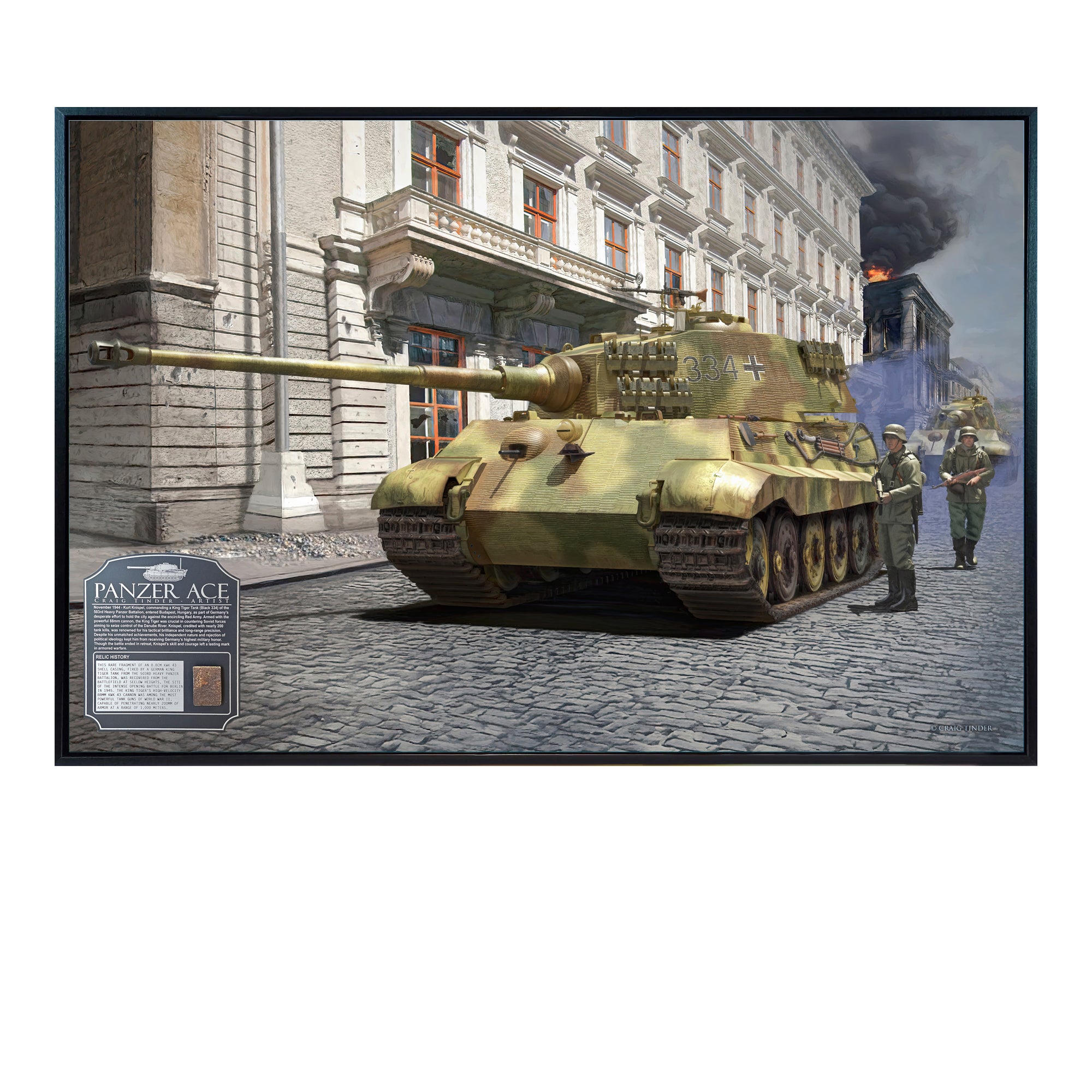
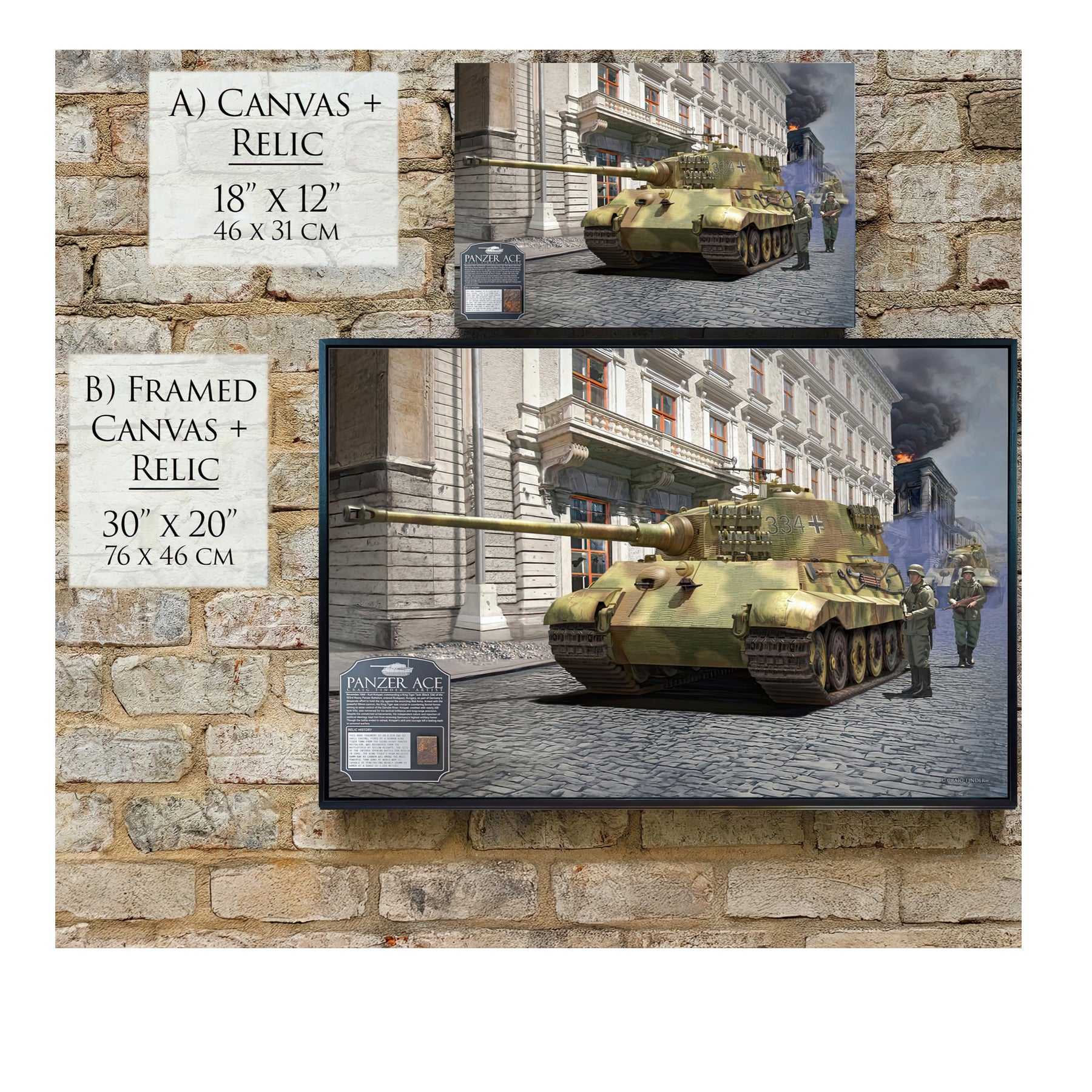
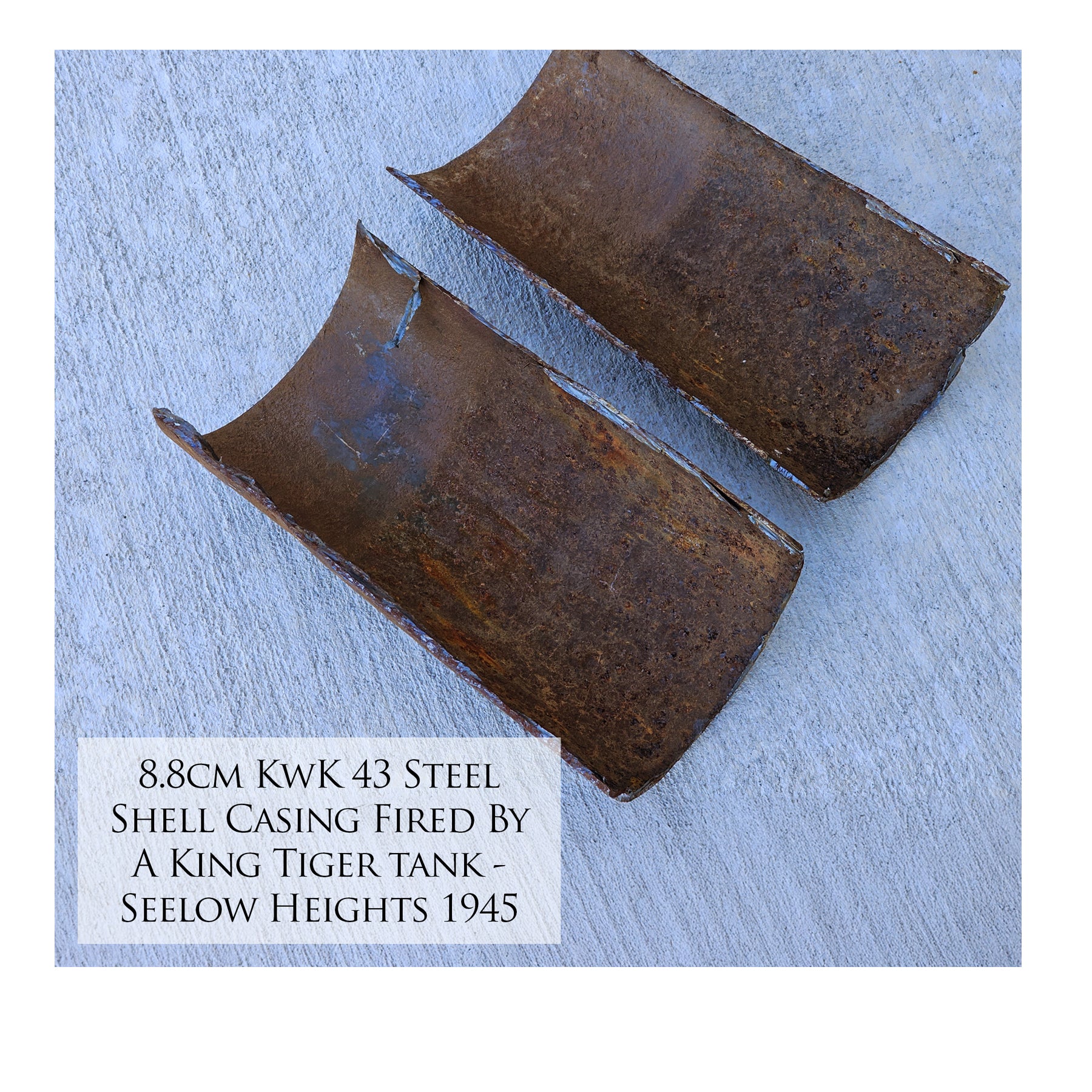
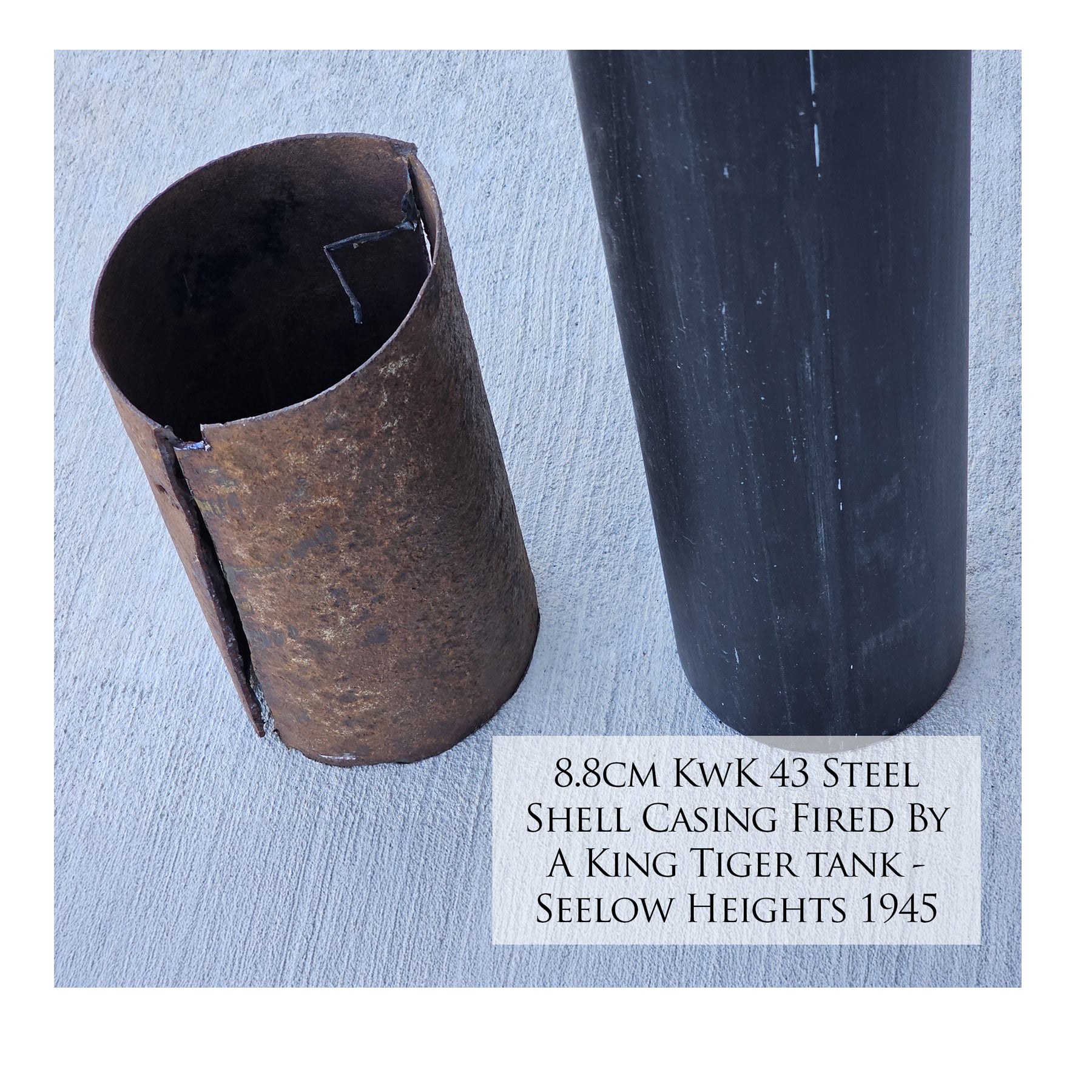
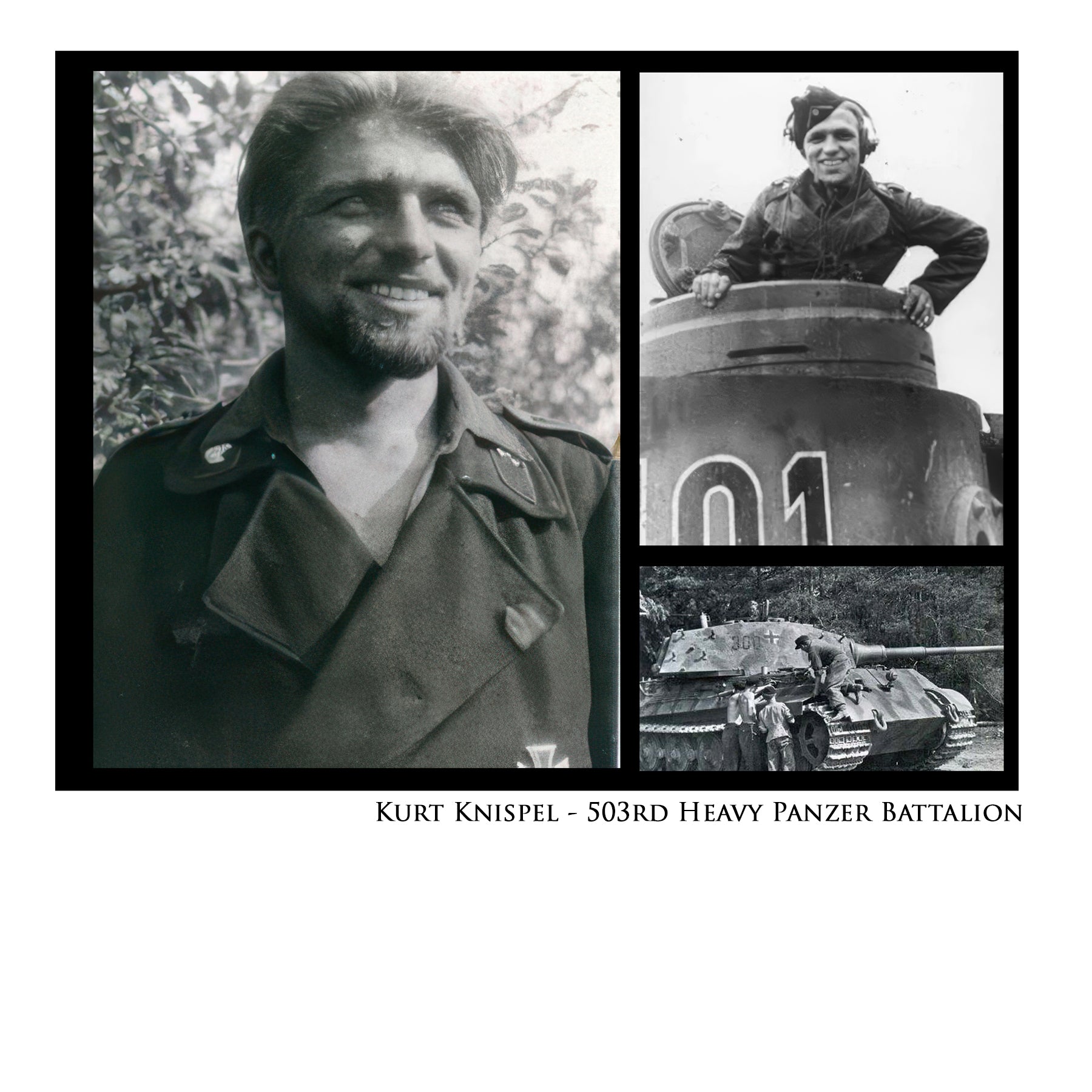

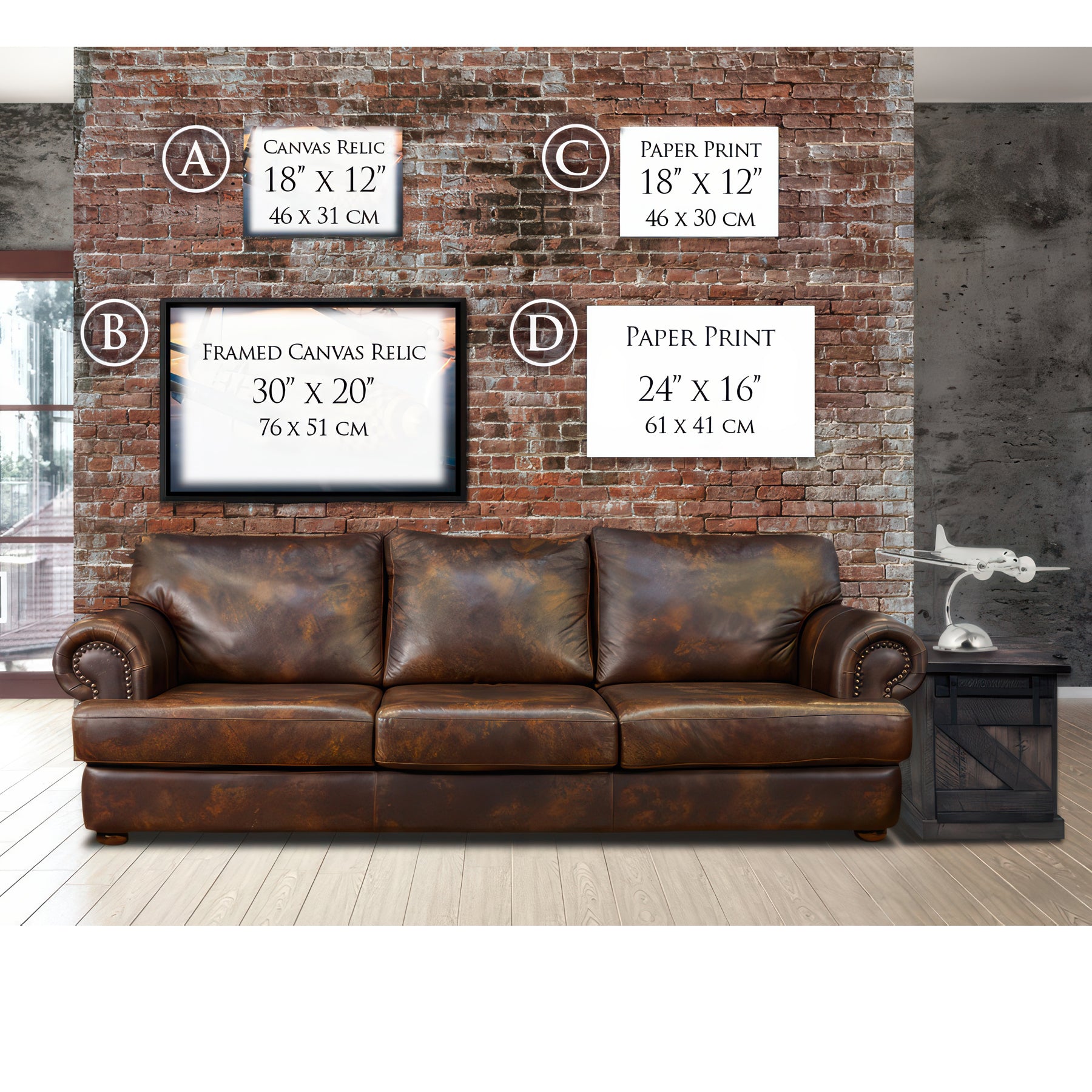
King Tiger Tank - Panzer Ace Canvas | INCLUDES: KwK 43 Shell Fragment

King Tiger Tank - Panzer Ace Canvas | INCLUDES: KwK 43 Shell Fragment
If you have any questions, you are always welcome to contact us. We'll get back to you as soon as possible, within 24 hours on weekdays.
Shipping Information
Use this text to answer questions in as much detail as possible for your customers.
Customer Support
Use this text to answer questions in as much detail as possible for your customers.
FAQ’s
Use this text to answer questions in as much detail as possible for your customers.
Contact Us
Use this text to answer questions in as much detail as possible for your customers.
Description
About the Relic & Process
This rare fragment of an 8.8cm KwK 43 shell casing, fired by a German King Tiger tank from the 503rd Heavy Panzer Battalion, offers a tangible link to one of the most pivotal battles of World War II: the Battle of Seelow Heights in April 1945. As the opening salvo in the Soviet assault on Berlin, this battle marked the beginning of the end for Nazi Germany, where desperate German defenses were overwhelmed by Soviet forces. The King Tiger’s formidable firepower, represented by this shell casing, was a cornerstone of the Wehrmacht’s armored resistance.

8.8cm KwK 43 Steel Cannon Casing Inside View

8.8cm KwK 43 Steel Cannon Casing Outer View
The Power of the 8.8cm KwK 43 Cannon
The Kampfwagenkanone 43 (Fighting Vehicle Cannon) or KwK 43, mounted on the Panzerkampfwagen Tiger Ausf. B, better known as the King Tiger, was a revolutionary weapon in tank warfare. This high-velocity 88mm cannon was designed to counter increasingly well-armored Allied tanks, such as the Soviet IS-2 and the American M26 Pershing. Capable of penetrating nearly 200mm of armor at a distance of 1,000 meters, the KwK 43 outperformed most tank guns of its time in both range and penetration power. Its tungsten-cored projectiles and advanced optics made it especially deadly in long-range engagements, giving German tank crews a tactical advantage in open battlefields.
However, the King Tiger’s exceptional firepower came with significant trade-offs. Its heavy armor and advanced weaponry made it one of the heaviest tanks of the war, weighing nearly 70 tons. This weight, combined with frequent mechanical breakdowns, limited its mobility and effectiveness in prolonged campaigns. At Seelow Heights, the rugged terrain and muddy conditions further strained the capabilities of these massive tanks, forcing their crews to operate under challenging conditions.
The Battle of Seelow Heights: Desperation on the Eastern Front
The Battle of Seelow Heights was fought from April 16 to 19, 1945, as part of the Soviet Union’s final push toward Berlin. The Red Army, commanded by Marshal Georgy Zhukov, launched a massive offensive involving over 2.5 million troops, 6,000 tanks, and 40,000 artillery pieces against the German forces defending the Oder River. The Seelow Heights, a series of elevated positions overlooking the river, were fortified by the Germans and served as a critical defensive line to delay the Soviet advance.
The 503rd Heavy Panzer Battalion, equipped with King Tigers, was among the elite units tasked with holding this line. Despite being outnumbered and outgunned, the German defenders fought tenaciously, using the King Tiger’s powerful KwK 43 cannon to knock out Soviet tanks before they could close the distance. These tanks were particularly effective at long ranges, where their superior firepower and thick frontal armor provided an edge against Soviet T-34s and IS-2s.
However, the overwhelming numerical superiority of the Soviet forces, combined with relentless artillery barrages and air support, eventually broke the German lines. The King Tigers, while effective in isolated engagements, could not compensate for the sheer scale of the Soviet assault. By the end of the battle, the German defenders were forced into a retreat toward Berlin, setting the stage for the final days of the war.
Disclaimer
By purchasing from Aces In Action, you acknowledge that the product may vary slightly from the images on our website. We use authentic materials from military vehicles and relics, which may contain potentially hazardous substances. These items are not intended for ingestion, inhalation, or use by children. Aces In Action is an independent company, unaffiliated with or endorsed by any other organization. All names, logos, and trademarks are the property of their respective owners and are used for identification only, in accordance with the Lanham Act. Their use does not imply any official endorsement.
